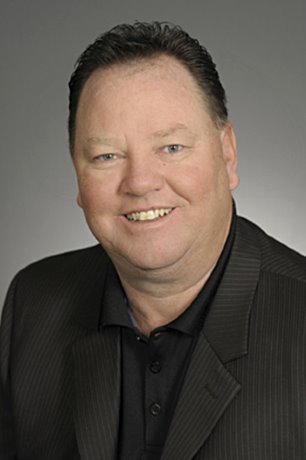Throughout his three years as chair of the Ontario College of Trades (OCOT) Ron Johnson says he’s seen the College take shape, win political battles and gain momentum after a rocky start.
"We had some people spreading a lot of misinformation out there so we were constantly combating misinformation. Certain stakeholders had their own self-interests at heart and they were doing whatever they could to inhibit the development of the College. That was obviously a challenge. I think we came out on top," he says.
"Launching an organization with this sort of mandate…is never easy. It takes a lot of work. You have to get all the right pieces in place."
As of Feb. 24 Johnson says his time as chair will come to a close, with interim chair Pat Blackwood filling his shoes until January 2016. An election for the next chair will follow after that.
"Ultimately, there’s always a time when you need fresh leadership and change and I think quite frankly the time has come for that," Johnson says.
"It’s been a bit of a whirlwind, and it’s been a lot of fun and I’ve really enjoyed it."
Johnson says he became chair because he’s always had a vested interest in the trades. He is also deputy director of the Interior Systems Contractors Association of Ontario and the Interior Finishing Systems Training Centre.
"My full-time job is sort of managing skilled trades and training, so from that perspective I’ve always had a huge interest in the management of trades," he explains.
"I’ve always had a strong belief that tradespeople should be managing their own affairs and that’s really what OCOT’s all about."
Johnson is also a former MPP and was involved with the College from its inception as a stakeholder initially, but then in a more substantive role.
"When I started getting involved in OCOT…I probably wasn’t completely aware of the amount of work that it would take," he states, adding he wanted to advocate on behalf of those who truly understand the trades.
"Government and politicians from Queen’s Park and bureaucrats do not have the same skill sets that tradespeople have when it comes to managing their own affairs."
He says while there were some challenges, there have been many highlights, including when OCOT opened its doors nearly two years ago, and when enforcement officers began their duties.
"The graduation of our first team and class of enforcement and compliance officers was sort of I think an important moment for tradespeople in Ontario," he says.
"You would always have people out there working illegally in the compulsory trades and yet there was never any enforcement or compliance issues with that — nobody around the check. Now we have boots on the ground."
However, getting over the politics, Johnson’s says, is one of the bigger triumphs.
"Winning the political battle was a big one. I think the message has really gotten out there that OCOT is really about protecting the public interest and ensuring the integrity of certification standards," he states.
"I think the tide has turned."
The Tony Dean review reiterates that, he states. Dean is currently conducting a review of specific issues related to the College’s scopes of practice and the process for determining whether certification should be compulsory or voluntary, which Johnson says shows OCOT’s commitment to improvement.
"It brings somebody to the table with a wealth of knowledge and experience. This is an organization unlike any other in the world quite frankly and it’s going to take some time to get it right and we recognize that," he explains. "You can’t build the largest regulatory College in North America overnight."
Johnson will stay on the OCOT board and the executive committee and says he is optimistic about the future.
"Most tradespeople believe in self-management and self-regulation now and that was a message that’s taken quite some time to get through to people. We’re still going to have our detractors there’s no question about that," he adds. "If you look at the foundations we’ve put in place in terms of governance and in terms of staffing, I think we’re poised to mature as an organization."










Recent Comments
comments for this post are closed